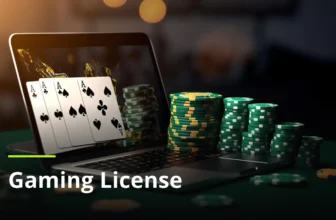
Poker, one of the most popular card games in the world, has undergone a remarkable transformation with the advent of technology and the internet. In recent years, traditional poker tables and brick-and-mortar casinos have given way to the digital realm, where players can engage in thrilling showdowns from the comfort of their homes with the help of online casino UK.
This evolution has not only reshaped the way poker is played but has also opened up new avenues for poker enthusiasts. In this blog, we will explore the fascinating journey of online poker and the impact it has had on the poker community.
Table of Contents
The Emergence of Online Poker

Source: towardsdatascience.com
The roots of online poker can be traced back to the late 1990s when the first online poker room, Planet Poker, opened its virtual doors. At the time, the concept of playing poker on a computer screen seemed novel, and the player pool was limited. However, as technology advanced and internet connectivity improved, the popularity of online poker exploded. The convenience of playing anytime, anywhere, and the prospect of competing against opponents from different countries attracted a wave of players to the virtual tables.
The Rise of Online Poker Platforms
As the demand for online poker grew, several online poker platforms emerged, each offering different variations of the game and various tournament options. Market leaders like PokerStars, Full Tilt Poker, and PartyPoker became household names, and the competition for supremacy was fierce. These platforms not only introduced innovative poker variants but also hosted major online poker tournaments, providing players with the opportunity to win massive cash prizes and coveted titles from the comfort of their homes.
Advancements in Poker Software
The success of online poker can be attributed, in part, to the continuous advancements in poker software. Early online poker platforms had their fair share of technical limitations, but with time, the software became more sophisticated and user-friendly. Features like auto-shuffling, instant hand histories, and multi-tabling options revolutionized the online poker experience. Additionally, Random Number Generators (RNGs) were introduced to ensure fair play, providing players with the confidence that the game’s outcomes were unbiased and truly random.
The Poker Boom and Its Influence on Online Poker

Source: sportingnews.com
The early 2000s witnessed a poker boom, largely driven by televised poker tournaments and the exploits of charismatic players like Chris Moneymaker, who won the World Series of Poker (WSOP) Main Event after qualifying through an online satellite tournament. This watershed moment catapulted the popularity of online poker to new heights, as more players sought to emulate their poker heroes. The influx of recreational players into online poker rooms not only boosted the player base but also injected a fresh and vibrant energy into the game.
Legal Challenges and Regulation
The rapid growth of online poker was not without its challenges. Legal and regulatory issues varied from country to country, with some regions embracing online poker, while others imposed strict bans. Platforms had to navigate complex legal landscapes, which at times resulted in the suspension of services in certain jurisdictions. However, with time, many countries recognized the potential economic benefits of regulating online poker and started to establish clear frameworks to govern the industry.
The Mobile Revolution
The proliferation of smartphones and mobile devices further transformed the online poker landscape. With mobile poker apps, players could now indulge in their favourite game on the go, enhancing the accessibility and convenience of online poker. The mobile revolution also led to a surge in casual players, as people from all walks of life could join in the fun during their leisure time.
The journey of online poker, from its humble beginnings to becoming a global phenomenon, is a testament to the power of technology and the internet. The digital revolution has not only made poker more accessible and convenient but has also fostered a vibrant and diverse poker community. As technology continues to advance, and new innovations emerge, the future of online poker looks promising, promising even more exciting showdowns and experiences for poker enthusiasts worldwide.







